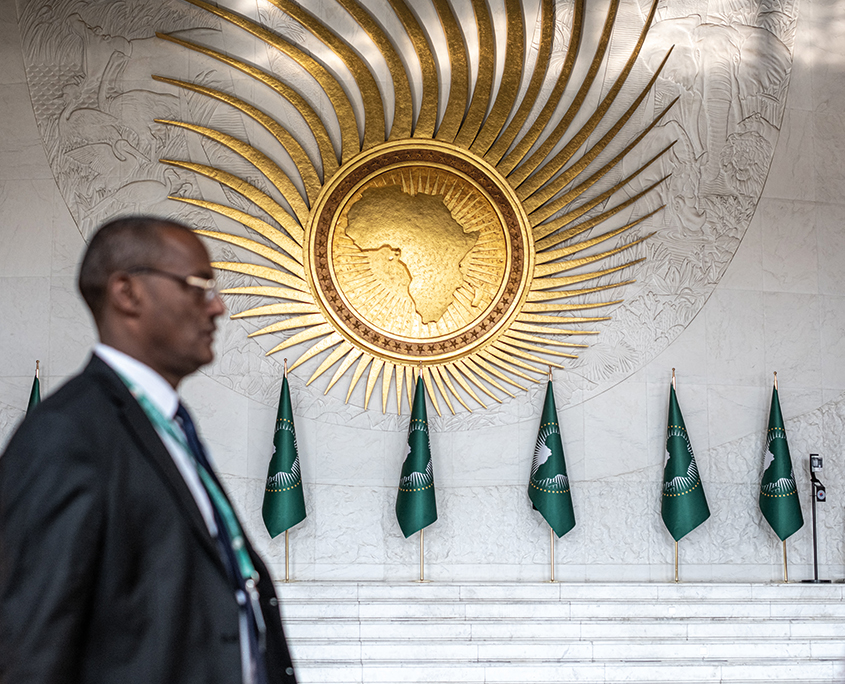An AU delegate walks of past the grand lobby of AU headquarters ahead of the 38th African Union (AU) Summit in February 2025.
Photo credit: Marco Simoncelli /AFP via Getty Images
A look at Africa’s diplomacy and what shapes it
The future of African diplomacy cannot be summed up in a single story. Many different forces and perspectives shape it, each showing a part of the bigger picture. For authors exploring this topic, it is essential to recognise that diplomacy in Africa has several layers, ranging from competition between global powers to regional cooperation and local problem-solving.
One way of looking at African diplomacy is through the lens of competition among global powers. Countries across Africa often have to balance their relationships with various partners, including China, Russia, the United States, and European countries. This approach focuses on how governments make strategic choices, often collaborating with multiple partners simultaneously to secure investment, security, or political backing. It explains the practical side of diplomacy but does not always capture the broader social and cultural context.
Another important perspective focuses on Africa’s own institutions, such as the African Union and regional economic communities like ECOWAS and SADC. Here, the emphasis is on cooperation, integration, and how collective action can give Africa a stronger voice on the global stage. These institutions play key roles in peacekeeping, trade, and development. However, challenges remain, including uneven implementation of decisions and delays in building consensus.
Some discussions highlight Africa’s role in pushing for fairness in global affairs. Issues such as climate change, migration, and reform of international organisations are framed not only as political matters but also as moral ones. From this perspective, diplomacy is about justice, inclusion, and ensuring African voices are heard in setting global rules. Civil society groups and community advocates often contribute to this narrative alongside governments.
Diplomacy today is not only about state leaders. It also includes technical areas such as digital governance, cross-border trade, and even city-to-city cooperation. For example, African countries are negotiating how to manage digital data, while the elected or appointed heads of city governments, including mayors and governors, are building international partnerships on climate change. This perspective reveals that diplomacy now encompasses regulators, businesses, and local governments, thereby broadening its scope beyond traditional foreign policy.
Africa has also faced numerous crises, including political instability, health emergencies, and climate-related disasters. These situations often call for a different form of diplomacy, one that is swift, practical, and focused on addressing immediate needs. Crisis diplomacy offers valuable lessons for responding more effectively in the future and building resilience against similar challenges.
The most useful way to understand African diplomacy is to see it as a combination of these different perspectives. Strategic competition, regional cooperation, justice, technical innovation, and crisis response are all part of the same picture.
For authors, the task is not to reduce African diplomacy to a single story but to show how these many narratives overlap and interact. By combining real-time reporting with historical background, examining both strengths and challenges, and keeping the African agency at the centre, it becomes possible to present a clearer and more balanced understanding of where African diplomacy is heading.



